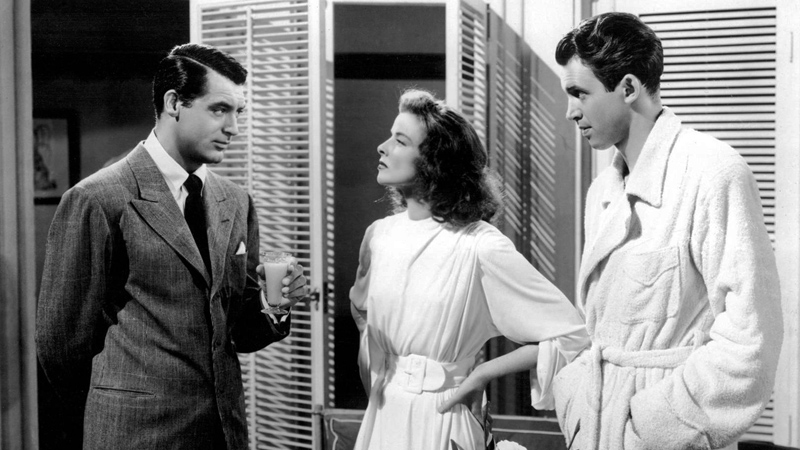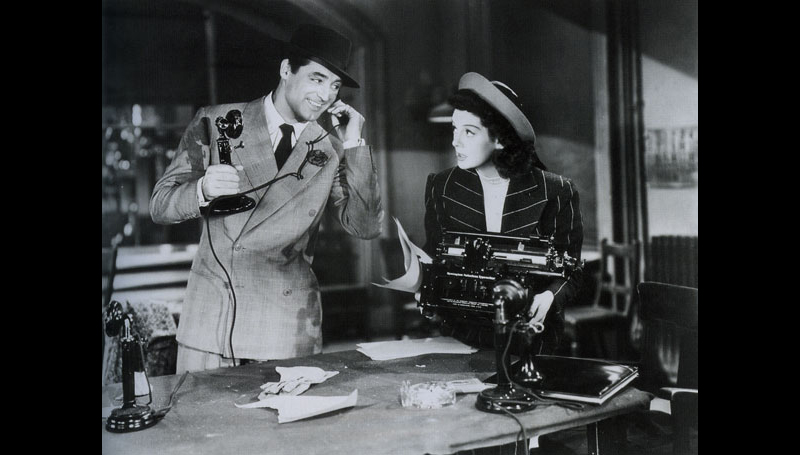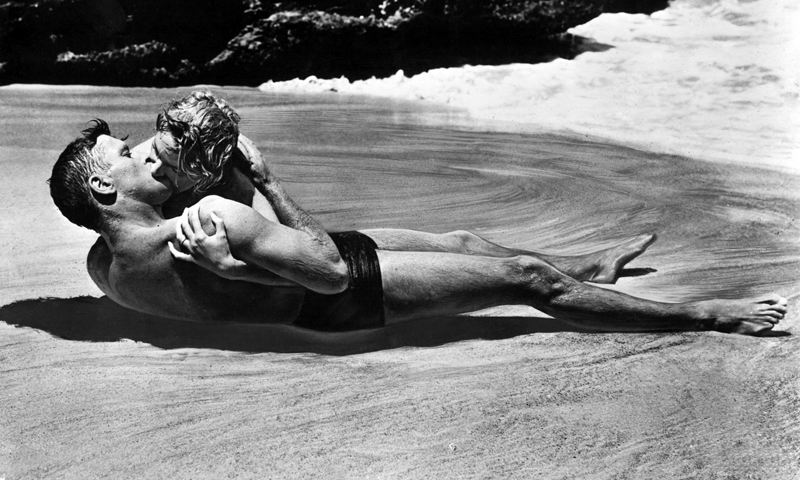The "Remarriage" Theme in Hollywood's Screwball Classics
In CELESTE AND JESSE FOREVER, a young couple launches into divorce with brio, as the two old friends actually believe they can stay friends -- and neighbors -- as they dissolve their legal ties and embark on individual paths. Anyone out there who has been through a divorce will know this is a naive premise, but it's a great set-up for this bittersweet film. As Roger Ebert said in his review of the film, the common refrain after a break-up -- "but we're still best friends" -- are "five of the saddest words in romance."
How could Celeste and Jesse be so naive? Maybe they watched too many classic Hollywood films in which a divorced husband and wife fall in love again! Films like THE PHILADELPHIA STORY (1940) and HIS GIRL FRIDAY (1940) both star the dashing Cary Grant as the ex-husband whose irresistible charms get him the girl a second time. This storyline proved so profitable that the real-life couple of Spencer Tracy and Katharine Hepburn reprised it again and again in films like WOMAN OF THE YEAR (1942) and ADAM'S RIB (1949).
This storyline was so common in the 1930s-1940s that film historian Stanley Cavell came up with a convincing theory on the role of remarriage in classic studio films. He argued it was Hollywood's attempt to help renegotiate a sense of marriage based on mutual love rather than societal expectations. The sub-genre also emerged thanks to restrictions on stories about divorce caused by the Production Code (also known as the Hays Code), which forbid depictions of divorce, adultery, and sex that did not at least ruin the lives of a film's major characters (as happens to the doomed lovers in FROM HERE TO ETERNITY). With the remarriage plot, when husband and wife ultimately reunite, the flirtations and sexual innuendo of the story are justified by the sanctity of marriage, and thus such hanky panicky escaped the scissors of the Production Code's chief censor, Will H. Hays.
The fact that the film's star, Rashida Jones, wrote this screenplay with her own ex-boyfriend, Will McCormack (who appears in ELF and SYRIANA), suggests that there might be more than fiction to the idea of a productive partnership that survives the end of a love affair. (Rashida herself is the product of divorced parents: the musician Quincy Jones and actress Peggy Lipton.) With this poignant story, Jones reminds us that love today is far more complicated than during the Hays code, when a girl would be crazy not to hook back up with Cary Grant, and far more confounding than simply changing your Facebook status from married to single.









